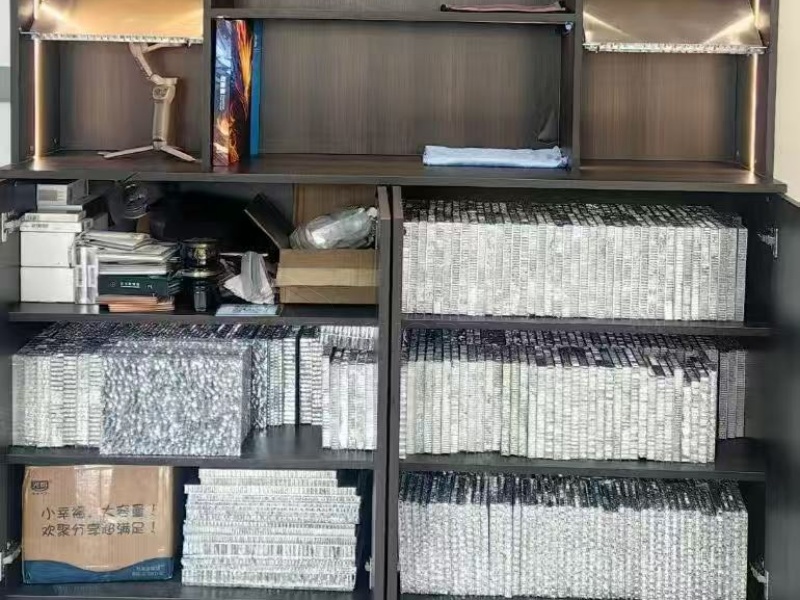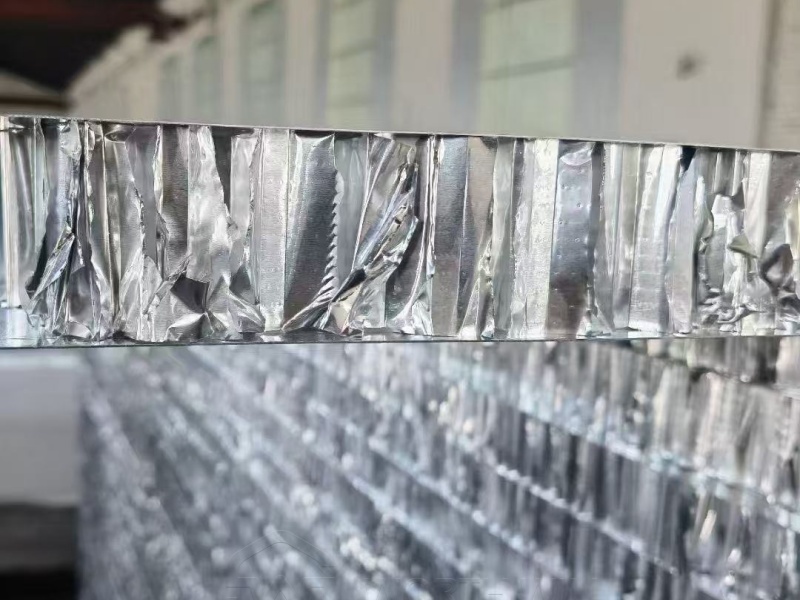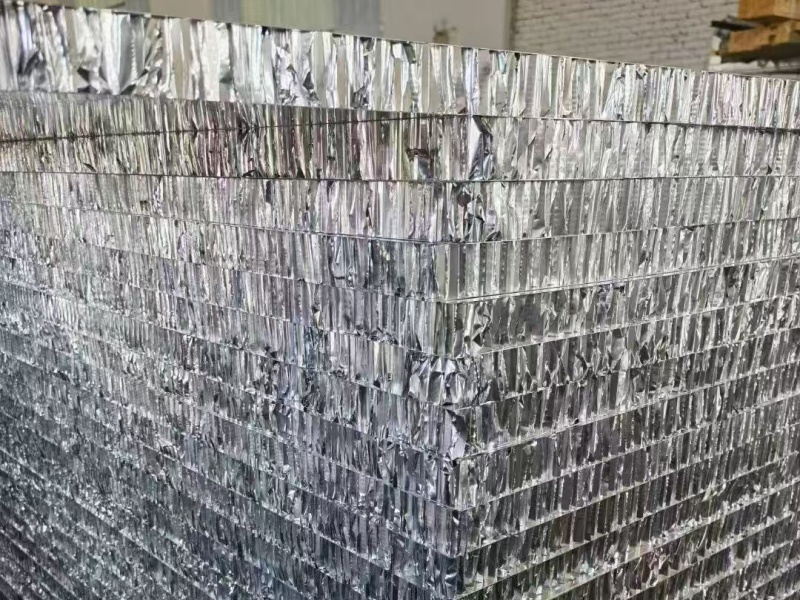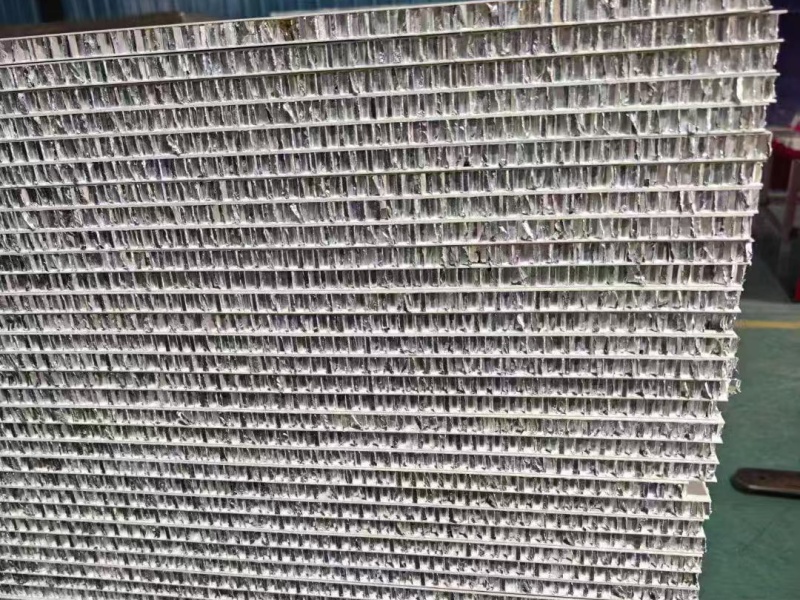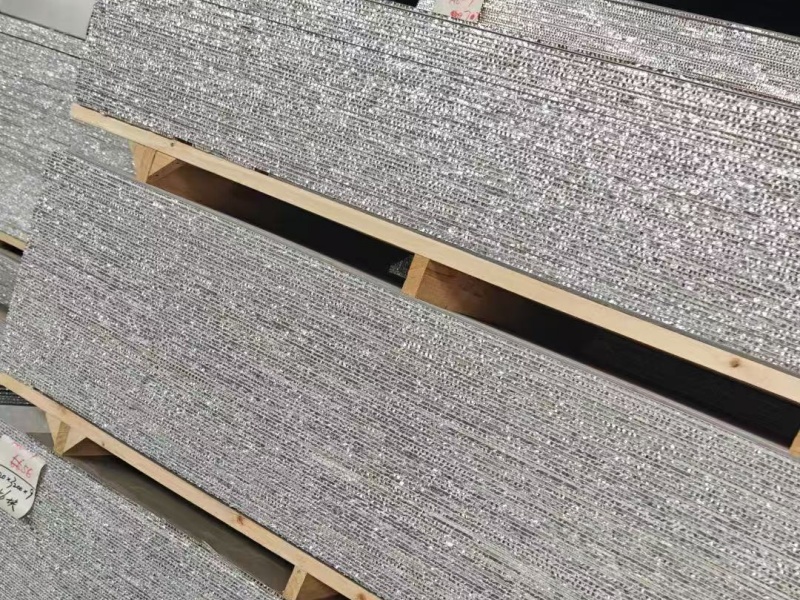Aluminum core panels are lightweight, strong, and durable materials used in various industries. These panels have an aluminum honeycomb or solid core, providing high strength, corrosion resistance, and excellent fireproof properties.
Why Choose Aluminum Core Panels?
- Lightweight: Easy to transport and install.
- High Strength: Stronger than traditional materials.
- Corrosion Resistant: Ideal for outdoor and humid environments.
- Fireproof: Meets safety standards for buildings and vehicles.
- Eco-Friendly: Recyclable and energy-efficient.
Applications
Aluminium core panels are used in various industries due to their versatile and durable nature:
- Building & Construction: Walls, ceilings, facades, and partitions.
- Transportation: Aircraft, ships, trains, and automotive parts.
- Furniture & Interior Design: Cabinets, doors, and decorative panels.
- Signage & Advertising: Billboards, display boards, and shopfronts.
- Industrial Use: Machine enclosures and cleanroom panels.
Types
- Aluminum Honeycomb Panels – Ultra-light with high stiffness.
- Solid Aluminium Core Panels – Strong and impact-resistant.
- Fire-Resistant Aluminum Panels – Designed for safety applications.
- Decorative Aluminum Panels – Available in various colors and finishes.
Aluminum Core Panels vs. Other Materials
| Feature | Aluminum Core Panels | Traditional Wood | Steel Panels |
|---|---|---|---|
| Weight | Lightweight | Heavy | Very Heavy |
| Strength | High | Moderate | High |
| Corrosion Resistance | Excellent | Low | Moderate |
| Fire Resistance | Yes | No | Yes |
| Environmental Impact | Recyclable | Deforestation | Recyclable |
What Are Aluminum Honeycomb Panels Used For?
Aluminum honeycomb panels are widely used in applications that require high strength and low weight. Common uses include:
- Aerospace and Aviation: Interior panels, flooring, and partitions.
- Marine Industry: Boat interiors and bulkheads.
- Architecture: Curtain walls, ceilings, and doors.
- Automotive Industry: Car body panels and reinforcements.
How Thick Is an Aluminum Honeycomb Panel?
The thickness of an aluminum honeycomb panel varies depending on its application. Common thickness options include:
- 6mm to 10mm – Lightweight applications such as signage and interior panels.
- 12mm to 20mm – Used for wall cladding and partitions.
- 25mm and above – Structural applications requiring high strength.
What Are the Disadvantages of Aluminum Panels?
While aluminum panels offer many advantages, they also have some limitations:
- Higher Cost: More expensive than some alternative materials.
- Denting & Scratches: Can be prone to surface damage under impact.
- Thermal Conductivity: Requires insulation for temperature-sensitive applications.
- Limited Design Flexibility: Some panels have constraints in shaping and bending.
What Is the Difference Between Aluminum Composite and Honeycomb?
| Feature | Aluminum Composite Panel (ACP) | Aluminum Honeycomb Panel |
|---|---|---|
| Core Structure | Plastic (PE or FR) Core | Aluminum Honeycomb Core |
| Weight | Heavier | Lighter |
| Strength | Moderate | High |
| Fire Resistance | Depends on the core material | Excellent |
| Best Use Cases | Signage, facades, and interiors | Aerospace, transport, and high-strength applications |
Why Buy Aluminum Core Panels from Worthwill?
- Factory Direct Price – Competitive pricing with high quality.
- Custom Sizes & Colors – Tailored to your project needs.
- Fast Delivery – Quick production and shipping.
- Professional Support – Expert guidance for your projects.
If you need aluminium core panels for construction, transportation, or industrial use, Worthwill provides reliable and high-quality solutions. Contact us today for the best prices and options!
